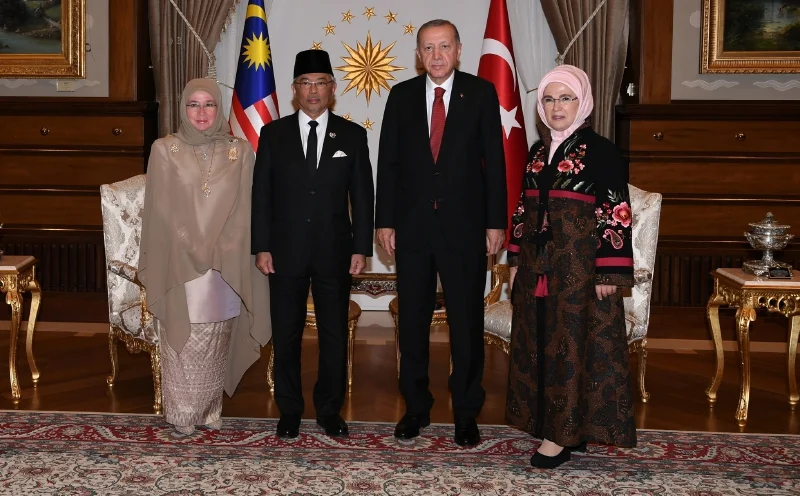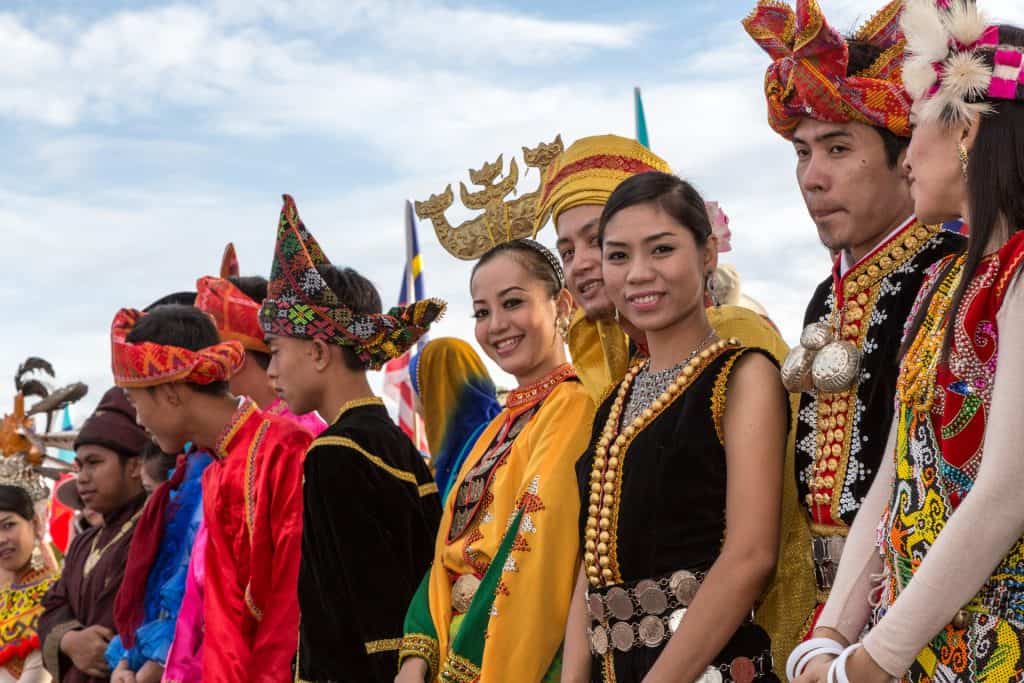2021 is over, and we have just celebrated the new year 2022. Throughout 2021 ten international events have created history and influenced international relations in the years to come. It should be emphasised that the following arguments are not arranged in order of priority.
First, in January 2021, the world witnessed the President of the United States (US) change from Donald Trump to Joe Biden. Throughout 2021 the new administration under President Joe Biden has repeatedly chanted that ‘America is back’ or America is back. President Joe Biden sought to fulfil his promise to strengthen ties with US allies. As such, the US has recommitted to the Paris Climate Agreement and the World Health Organization (WHO), renewed five-year nuclear weapons reduction talks with Russia (New START), sought to restore Iran’s nuclear deal, and ended US support for offensive military operations in Yemen.
In addition, Joe Biden’s administration also changed the America First policy pioneered by former President Donald Trump by promoting a more open US image. However, after nearly a year had passed, Biden became US President; many international leaders and analysts wondered how far US foreign policy had changed. Moreover, U.S.-China relations remain particularly strained on trade, security and diplomatic issues. There is no denying that US foreign policy under Biden is different from Donald Trump in terms of implementation but, in principle, still the same.
Second, riots and attempted revolt by supporters of President Donald Trump at the Capitol Building, Washington DC, the US capital, in January 2021. Donald Trump supporters sought to stop the US Congress from confirming Joe Biden’s victory and subsequently blocking his appointment as US President. Although the riots are over, it tarnishes the image of the US as a democracy. At the same time, it has long-lasting implications for the US as the insurgency could be a catalyst for other groups to do the same in the future, especially during the US Presidential Election in 2024. Even three former US military commanders have expressed their fears of a coup by the US military itself.
Third, in February 2021, while facing the challenge of fighting the COVID-19 pandemic, the international community was shocked by the coup in Myanmar. However, anyone who understands the Myanmar government’s political dynamics will not be surprised as Tatmadaw has a powerful influence. It is reported that relations between Aung San Suu Kyi and Chief of Tatmadaw, General Min Aung Hlaing, have deteriorated since 2020. The situation became more serious when the National League for Democracy (NLD) party led by Aung San Suu Kyi won a landslide victory over the Union Solidarity and Development Party (USDP), pro-military, in the November 8, 2020 Election.
The coup has affected the democratisation process in Myanmar that had begun a decade ago. The people of Myanmar have just democratically elected their leaders; this coup has betrayed the aspirations of the people of Myanmar. It has violated the spirit and principles of democracy. What is more worrying is the fate of ethnic minorities in Myanmar, such as the Rohingya, Karen, Kachin and Shan communities. Aung San Suu Kyi and other top NLD leaders have been sentenced to prison. The situation in Myanmar became severe; it was reported that Tatmadaw had punished and tortured anyone protesting peacefully.
Fourth, ASEAN has to face a dilemma due to political developments in Myanmar. ASEAN leaders have to choose whether to proceed with a policy of non-interference or non-interference in the internal politics of member countries or not. The ASEAN Special Meeting on Myanmar was held on April 24. In line with the ‘ASEAN Way’, the policy of non-interference in internal issues of member countries and the concept of consensus and the five-point consensus has been agreed upon. However, after six months, the situation has worsened, and it is clear that Myanmar has underestimated ASEAN. Thus, in October, ASEAN showed its determination not to invite Myanmar’s Chief of Army Staff General Min Aung Hiang not to attend the ASEAN Conference and the East Asia Conference 2021. Not inviting the Myanmar leader is the first time ASEAN has taken firm action since its inception in 1967.
Fifth, the withdrawal of US troops from Afghanistan is in line with the US-Taliban Agreement signed on February 29, 2020. The US has agreed to reduce the number of troops in Afghanistan to 2500 members and a complete withdrawal on May 1, 2021. Meanwhile, the Taliban agreed not to protect al-Qaeda or any group capable of compromising US security and interests. After 20 years (2001-2021), the US has contributed more than $ 80 billion in training and support to security forces in Afghanistan. However, it could not prevent the Taliban’s takeover of Afghanistan quickly. The Taliban have captured Kabul, the capital and administrative centre of the US-backed Afghan government, without any resistance or gunfire until Afghan government leader President Ashraf Ghani was forced to flee to the United Arab Emirates (UAE) to avoid being hunted.
Sixth, the resurgence and restoration of the Taliban -led government in Afghanistan. On August 15, the Taliban took over the Afghan capital Kabul, marking the end of the conflict between the Taliban and the US. Although the occupation and conflict ended, this does not mean that the situation in Afghanistan has calmed down completely. The future, especially stability and peace in Afghanistan, is still uncertain. Taliban leaders have begun talks with China to gain recognition and financial support. For China, Afghanistan is a strategic country in the Belt and Road Initiative (BRI) program because it can connect Xinjiang province, China, with Iran, Turkmenistan and Uzbekistan through railways and highways. China is also interested in venturing into the mining industry in Afghanistan. At the same time, China also needs the cooperation of the Taliban so that they do not support the East Turkestan Islamic Movement (ETIM) group, which is fighting the separatist movement in Xinjiang province.
Seventh, when the leaders of the three countries of the United States (US)- President Joe Biden with the United Kingdom (UK)- Boris Johnson and Australia- Scott Morrison have declared the establishment of a military alliance known as AUKUS, which stands for Australia, United Kingdom and the United States. Among the things agreed in AUKUS is sharing nuclear-powered submarine technology from the US to Australia. In addition, AUKUS also covers collaboration on cyber capabilities, artificial intelligence (AI), quantum technology and underwater capabilities. However, the main focus of this alliance is to increase military power. During the declaration of AUKUS, the UK and Australia did not mention any country as their target. Still, it was apparent that one of the main objectives was to balance China’s influence in the Indo-Pacific region. Many see this as an increase in military activity in the Indo-Pacific region. However, the Prime Minister of Malaysia Dato ‘Seri Ismail Sabri Yaakob has urged all parties to avoid any form of provocation.
Eighth is the emergence of a vaccine as an antidote to the COVID-19 virus. It should be emphasised that the speed with which the COVID-19 vaccine was produced was astonishing. History shows that between ten to fifteen years is required to produce a vaccine. Even the fastest vaccine ever produced is four years old. The COVID-19 vaccine was produced in less than a year. More than 7.4 billion vaccine doses were given among 184 countries in the first eleven months of 2021, with seventy countries becoming vaccine donors. Then came the concept of health diplomacy or health diplomacy. However, this does not mean the world is becoming safer from the COVID-19 pandemic as new virus variants have been discovered, such as Delta and Omicron, that are more dangerous and can spread faster.
Ninth is the United Nations Climate Change Conference (COP-26), held in Glasgow, Scotland, in November 2021. Among the items discussed included the reduction of methane and carbon emissions and climate change effects such as floods, droughts, and forest fires. Nevertheless, the extent to which the international community, predominantly industrialised countries such as the US, China and Russia, will adhere to the agreed agenda. Otherwise, COP-26 is nothing more than a leaders’ meeting to discuss, but there is no result.
Tenth, international sporting events are held again. After a year of delay due to COVID-19, the Tokyo 2020 Summer Olympics, and the Paralympic Games held in Japan from late July to early September. Meanwhile, June and July saw UEFA Euro 2020 in 11 European cities and the Copa América 2021 in Brazil. The organisation of sporting events on a global scale has helped to recover gradually, positively impacting sports fans after a long wait due to the COVID-19 pandemic.
It is hoped that 2022 will see a more stable and secure world after the uncertainties faced by the COVID-19 pandemic since 2020.
[Photo credit: internet]


